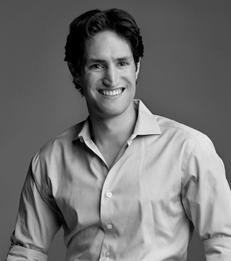Opinion
The Endless, and Expensive, Quest for Rare Objects
—


Rarity elevates a product or experience by turning its consumption into a notable event.
By Adam Alter
A few months ago, I was invited to speak at a small marketing conference in Chicago. To attract attendees, its organizer promised everyone a one-ounce pour—a sip, more or less—of a cult bourbon called Pappy Van Winkle. Pappy, as it is known to its fans, is so sought after that it’s nearly impossible to find, and, a few days before the conference, word came that the Pappy supplier had fallen through. Luckily, I happened to walk into a Greenwich Village liquor store where two bottles had just arrived. “They’ll be gone by tomorrow,” the clerk said, before naming his price: thirty-five hundred dollars for the pair. I left with both bottles in a brown paper bag (after, of course, determining that the conference organizers would reimburse me).
There’s a reason bourbon drinkers love Pappy. While most high-quality bourbon sits in a barrel for between eight and twelve years, Pappy ages for as much as twenty-three years. A bottle of top-shelf twelve-year-old bourbon sells for around a hundred dollars. Because the bourbon has aged for twice as long, two hundred and forty nine dollars, the list price for a bottle of Pappy twenty-three-year, doesn’t seem all that unreasonable.
But few people manage to buy Pappy at its list price. Unlike Jim Beam, which releases seven million barrels of bourbon each year, the Van Winkle family releases only seven thousand. The demand for Pappy is so high that most bottles are bought by resellers. On the resale market, bottles of Pappy twenty-three-year go for as much as four thousand dollars apiece—sixteen times their list price. That extraordinary markup presents a mystery for economists. Pappy Van Winkle isn’t sixteen times better than its competitors. Instead, the bourbon’s rarity seems, in itself, to be a source of its value.
Read the full article as published in The New Yorker.
___
Adam Alter is an Associate Professor of Marketing with affiliated appointment in the Psychology Department.
There’s a reason bourbon drinkers love Pappy. While most high-quality bourbon sits in a barrel for between eight and twelve years, Pappy ages for as much as twenty-three years. A bottle of top-shelf twelve-year-old bourbon sells for around a hundred dollars. Because the bourbon has aged for twice as long, two hundred and forty nine dollars, the list price for a bottle of Pappy twenty-three-year, doesn’t seem all that unreasonable.
But few people manage to buy Pappy at its list price. Unlike Jim Beam, which releases seven million barrels of bourbon each year, the Van Winkle family releases only seven thousand. The demand for Pappy is so high that most bottles are bought by resellers. On the resale market, bottles of Pappy twenty-three-year go for as much as four thousand dollars apiece—sixteen times their list price. That extraordinary markup presents a mystery for economists. Pappy Van Winkle isn’t sixteen times better than its competitors. Instead, the bourbon’s rarity seems, in itself, to be a source of its value.
Read the full article as published in The New Yorker.
___
Adam Alter is an Associate Professor of Marketing with affiliated appointment in the Psychology Department.
